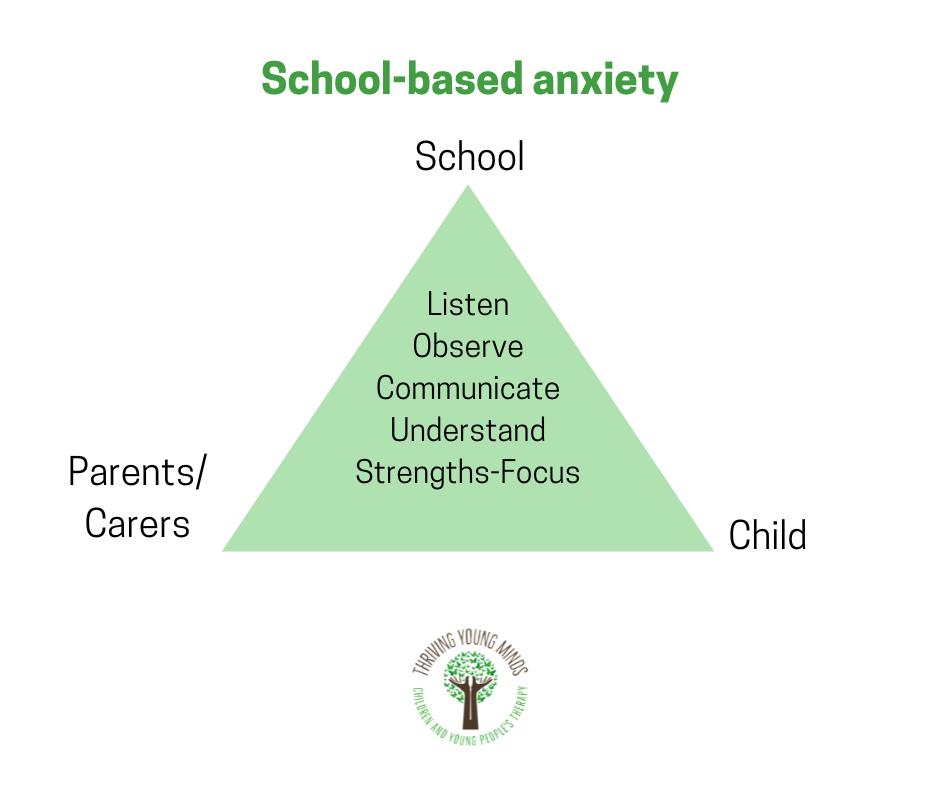One of the most common issues we see in the counselling room is anxiety, particularly among young people in the 16-21 age group. Why is this the case? What influences it? What can we do about it?
People often say “I have anxiety” or “I’m anxious all the time” or “I keep having panic attacks”. It’s important to acknowledge that anxiety is a natural bodily response – it keeps us alert in potentially threatening situations. It is the body’s way of making sure blood, energy and hormones are in the right place at the right time, should we need them. However, when it starts to interfere in day-to-day life then it can cause more harm than good and have long-term implications. So why do some people experience high levels of anxiety?
Trauma
Trauma can include any past experience where a person has felt threatened such as witnessing domestic abuse, being bullied, parental separation, neglect or accident. It can come in various forms – a terrorist attack for example. We don’t need to have been there to experience trauma. Someone we know may have been close by or we could have seen disturbing images in the media.
Trauma often leads to hypervigilance – jumping if you hear a loud noise, constantly scanning around you for any kind of danger, sensing what mood someone is in when they walk through the door, making sure a parent never leaves the room. It’s exhausting. We never switch off. We avoid people, places or activities and this impacts on our mood, feelings and life.
Internalised beliefs
So nothing you ever did made your parents happy, you tried your best to be who they wanted you to be but it just never happened. You then began to believe that you weren’t good enough, you weren’t important. So now you go out of your way to please people, even when it feels uncomfortable. You dress how you think you should, you follow what others do to belong or you try extra hard at school, college or work. All driven by the fear of not being perfect and getting criticised. That would make anyone feel anxious.
There are hundreds of similar scenarios where past experiences have influenced how we see ourselves today. Not important, not enough. We want to meet expectations, even if it doesn’t match with who we are. But then showing who we really are can bring judgement. You can’t win either way.
Distorted thinking
‘Everybody thinks I’m stupid’, ‘There’s no point trying, it won’t work out well’, ‘He shouted at me so he hates me’, ‘I’m just completely useless’. Sound familiar? If we have beliefs that are based on distorted thinking rather than reality, we are likely to feel anxious and behave accordingly. It becomes a spiral – we live our life according to these beliefs, then they appear to be even more true.
Whatever the cause, anxiety is exhausting. Adrenaline and cortisol levels are high, your heart beats fast, you’re constantly sensing potential danger. So what can we do? The short answer is, it depends what is causing it.
Explore thought patterns
In some cases this is effective. Our thoughts, feelings and behaviour are all linked, so exploring thoughts can change our feelings and then we behave differently. We then have a system to apply in different scenarios. However, depending on the situation it can be like putting a plaster over an infected wound – as a short-term fix it might work, but the cause of the problem is still there.
Re-processing
In cases of trauma or past experience, it is important to re-process or re-decide. Talking it through, exploring what beliefs you hold about the world or yourself, can help to move from a place of feeling incapacitated to feeling more able – more able to be who you are, to go to places you have avoided, to make the change you want to.
Self-confidence
What do you already do that works well? How can you do more of it? What can you do to focus on yourself? Ultimately, self-belief has to come from you, not depend on other people or external circumstances. How can you make that happen? Focus on your strengths and qualities, look after yourself because you deserve it.
Mindfulness
Mindfulness is noticing what is happening in the present moment, rather than focusing on things that might happen, or being distracted by thoughts. Look around you – what can you see, hear or smell. Remind yourself that you are safe, feel your feet solidly on the ground.
Anxiety isn’t something you have to live with. It isn’t something you ‘have’ that you can’t control. Being aware and making changes, with or without professional help, is completely possible. Sometimes accepting it is a part of life is key. Explore the deeper roots, challenge them and how you grow from here – you are in control.



